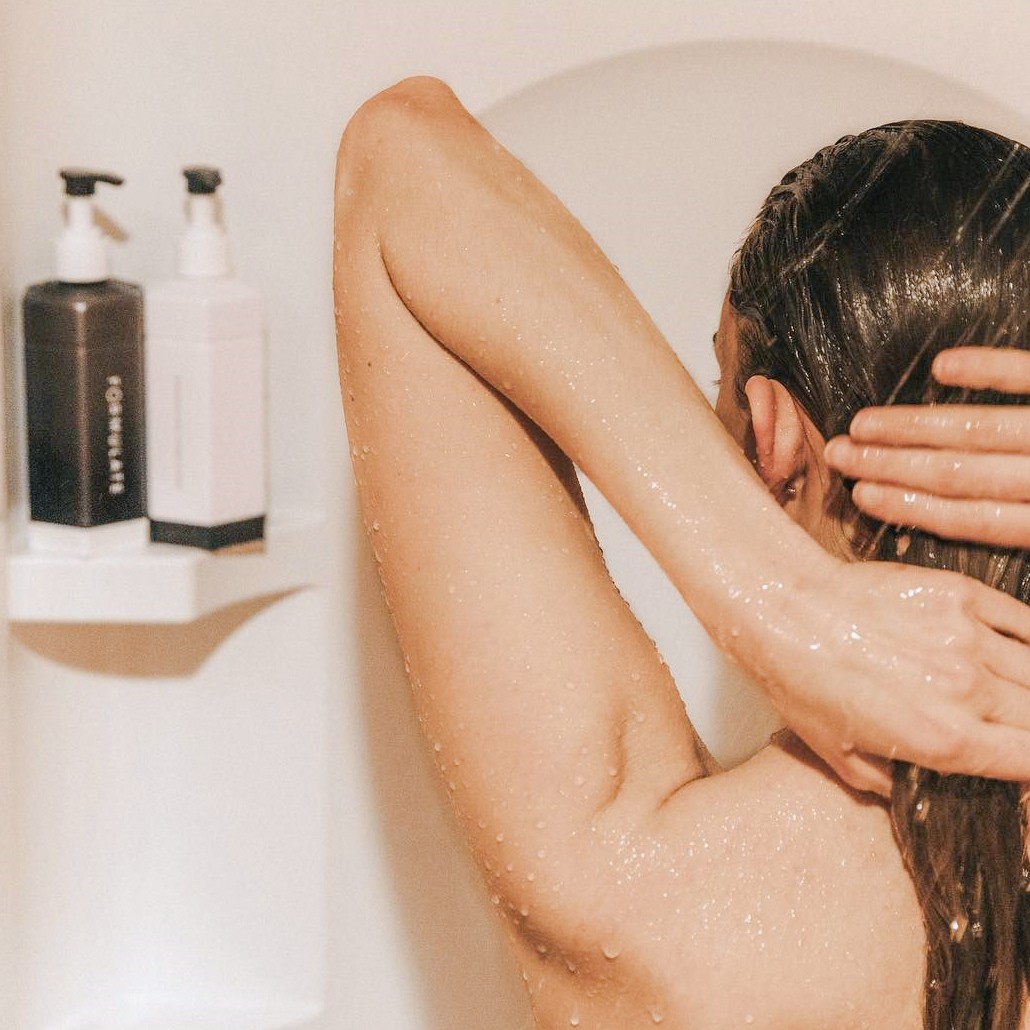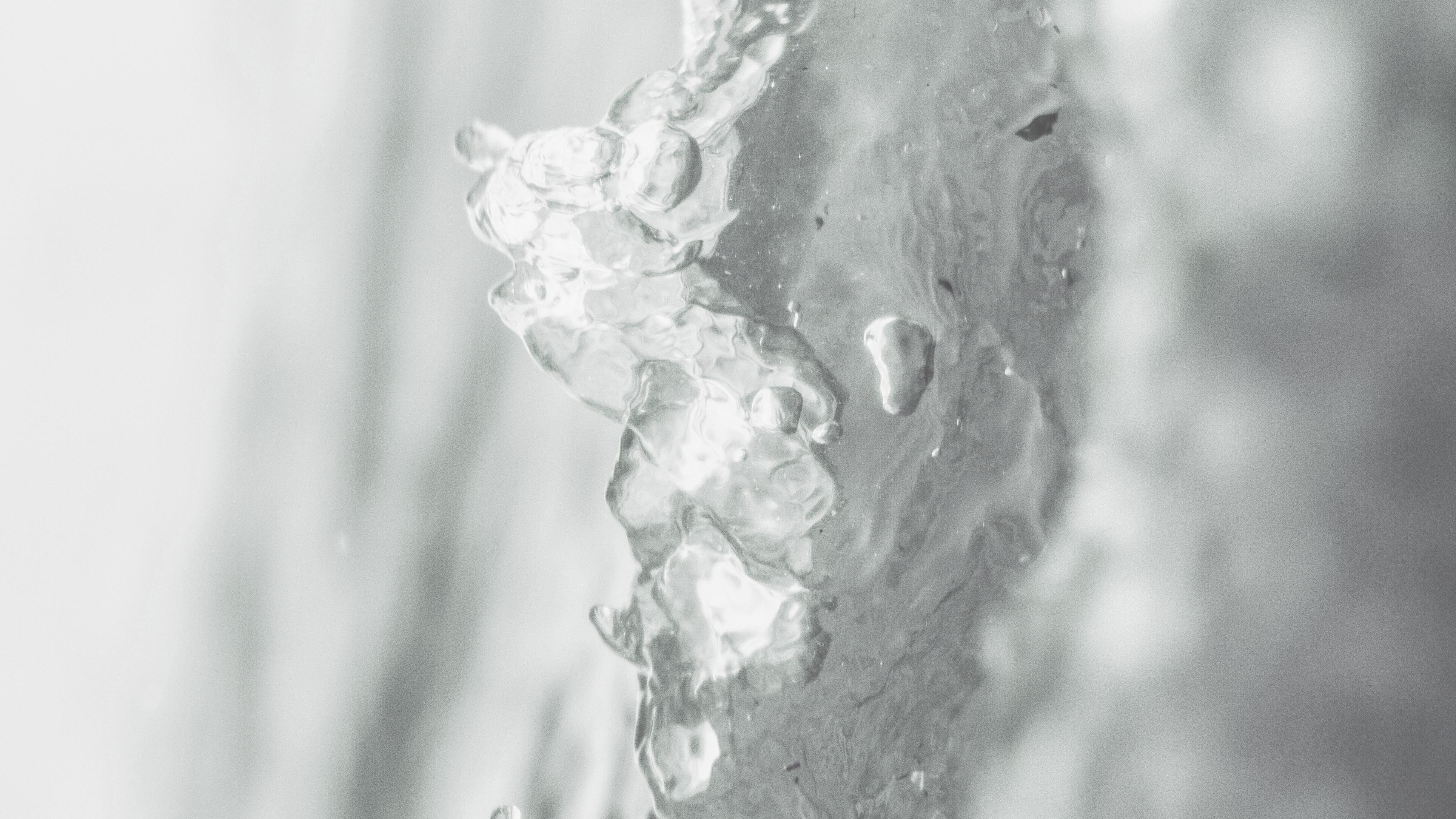Formulate user Jane has several questions about mineral oil:
Okay, this is going to be long. I always thought mineral oil was bad for hair. I heard that it makes hair stiff and dries it out. Also I thought that since it's an oil it would make my neck and back break out with acne wherever my hair touched it. Mineral oil is a classic on the haircare ingredient no-no list. So for several years I tried to avoid basically any hair product ever with mineral oil. I spent so much time reading product labels and stearing clear of anything with it. But one of my girlfriends is a master hairstylist, and she says this is totally baloney and there's no reason for me to avoid it. She went on this whole rant about how mineral oil is "functionally inert" (what does that mean?) and that it's actually pretty good for hair. I'm SO confused, because for years I thought that this was a basic rule, like you don't want sulfates, parabens, or mineral oil in your hair products. Also, it turns out that this lotion that I'm obsessed with has mineral oil in it, so clearly I was wrong about the breakout thing! So I want to start from square one. What does mineral oil do? Why is it in so many of my hair products? And is it bad for my hair?
Thanks for writing, Jane!
There's a heck of a lot of drama out there on the internet right now about if mineral oil is good or bad for your hair.
And despite a lot of very passionate fighting, few people seem to know exactly what mineral oil is.
Is it a moisturizer? Does it come from dinosaurs? Is it the same stuff that you gas up your car with?
Yes, kind of, and definitely no.
Let's get a working definition of mineral oil.
What is mineral oil, and why is it used in cosmetics?
Mineral oil is a type of carrier oil. A carrier oil is any type of oil that helps dilute or solubilize (evenly distribute one ingredient, the solute, into a liquid solvent) another ingredient
Have you ever mixed a packet of sugar into a glass of iced tea? Sugar is naturally water-soluble, so all it takes is a few swirls of a spoon and poof. The sugar becomes distributed within the liquid so that it is no longer visible to the naked eye.
While sugar is naturally soluble, other ingredients need some assistance in order to become evenly dispersed in liquid forms, so they don't just sink to the bottom or float on the top.
This is where carrier oils, such as cosmetic grade mineral oil, make a big difference in cosmetic chemistry. The particles of an insoluble ingredient are able to latch onto those of the carrier oil, and become suspended in the formula instead of sinking to the bottom or floating on the top.
Is mineral oil only used in cosmetics?
Nope, there are also food and medical grades of mineral oil.
You can find it in some food pantry staples - it is used as a binding agent or lubricant in the manufacture of yeast, and can be applied to grains like wheat, rice, oats and barley to help keep dust from adhering to the product.
Mineral oil is also an ingredient in some types of gummy candies, like Swedish fish, because it can help keep sweets from sticking together. It's also used as a protective covering for raw produce -- you can find it on meat, and raw fruits and vegetables.
Mineral oil is even used in supplements as a binder, and as an additive in fermentation. Your favorite wine may have been produced with mineral oil.
In the pharmaceutical industry, the oil is used in the manufacture of gelatin capsules, ointment and pomade formulations, and laxatives. In the veterinary drug industry, the oil is used for the manufacture of animal vaccines -- your best furry friend may have had his life saved by mineral oil.
Is mineral oil safe on hair?
Yes. Mineral oil does not penetrate the hair shaft - its molecular size and functional groups prevent it from "sticking" to proteins, so it is easily washed off. The current research indicates that cosmetic grade mineral oil is functionally inert, which means it is extremely unlikely to cause a skin allergy, clog pores, or create any other form of irritation. For this reason, mineral oil is preferable for many different skin types, including a baby's sensitive skin.

Although many consumers worry that using products that include cosmetic grade mineral oil will dry out their hair, current scientific literature actually conveys that the opposite of this is true - beyond being an incredibly useful carrying agent, cosmetic grade mineral oil also can help form a protective barrier around the hair to prevent loss of moisture. Basically -- it keeps water from escaping your hair and skin.
Mineral oil is also highly unlikely to spoil, even in the hottest of climates. So while a plant-based oil such as coconut oil or argan oil can easily go rancid if it's old or improperly stored, mineral oil doesn't carry this same risk.
What's "cosmetic grade" mineral oil?
This is where there's a lot of confusion.
People often point to safety regulations around industrial grade mineral oil to argue that cosmetic grade mineral oil should not be included in cosmetic chemistry. But the thing is...
industrial grade mineral oil and cosmetic grade mineral oil are almost entirely different products.
Industrial grade mineral oil is crude, and unrefined. It's commonly used in electric power, petroleum chemical, chemical fiber, textile, and the agriculture industries. Industrial grade mineral oil is used as a type of machine lubricant.
Cosmetic grade mineral oil is purified, refined and regulated. This is the type of mineral oil used in products like baby oil and cold creams. It's colorless, tasteless, and has a long history of safe use.
In order to be called "cosmetic grade", mineral oil must go through a high degree of refinement. White mineral oils are distilled to remove any and all contaminants like vanadium, lead, sulfur, and complex hydrocarbons like benzene.

Here at Formulate, we exclusively use US sourced NF grade mineral oil, which means it has been accepted as a pharmaceutical excipient and manufactured to the standard set by the National Formulary and United States Pharmocopea. We understand the exact manufacturing standards used by our cosmetic grade mineral oil suppliers, and have certified that it is of the very highest quality.
If you ever want to know more about the quality of the mineral oil included in a specific product, the best way to get more information is to ask the company that manufactures it.
Wanna learn even more about haircare? Here's what you should check out next:
pH Balanced Shampoo: Everything You Need To Know
The heck does "pH balanced" even mean???
How To Grow High Porosity Hair
Buh-bye, breakage.
How Long Should I Wait To Dye My Hair Again?
**glances at clock**
What Is A Hair Cuticle?
Let's learn more about your hair's first line of defense against damage. ⚔️
Hair Texture Changes 101
The good, the bad, and the ugly ... when it comes to hair texture changes, we've got you covered.




